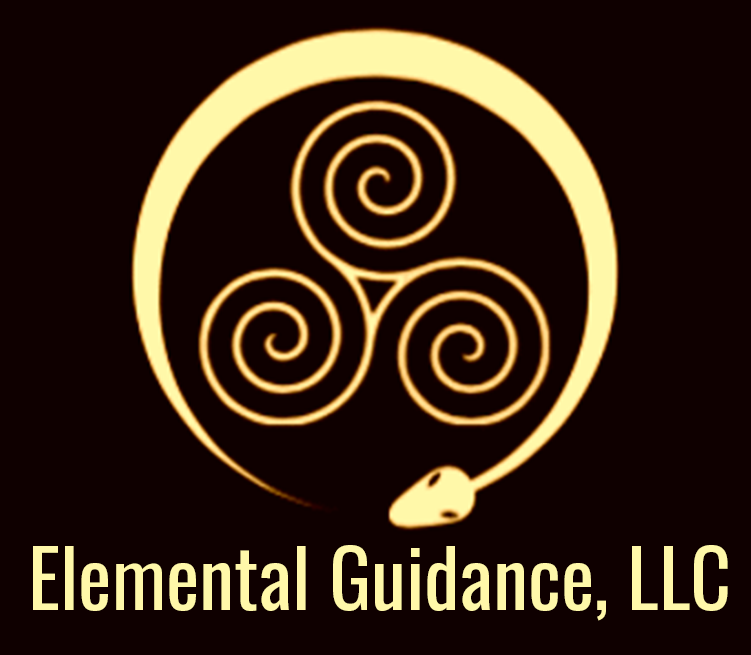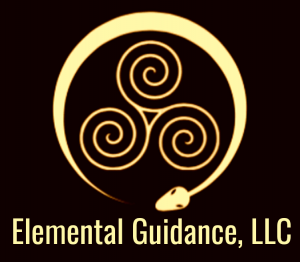How Diagnostic Labels Can Hinder Wholeness: My Big Fat Two Cents as a Therapist

My Big Fat Two Cents Series:
How Diagnostic Labels Can Hinder Wholeness
By Dr. Deepa Ram-Souza, LMFT, PhD

Namaste-Aloha, dear readers! I’m Dr. Deepa, a therapist and co-owner of Elemental Guidance, LLC, and the Center for Integral Wholeness in Hilo, Hawai’i. As a woman of East Indian and Hindu origins from Guyana and India, I am trying to embody the change I wish to see. This journey involves navigating the catalysts embedded in our life’s challenges, which brings me to the heart of today’s discussion: the unintended consequences of psychopathology diagnostic labels when addressing struggles stemming from prior and early life challenges in adulthood.
The Complexity of the Human Experience
My exploration of the world of therapy has unveiled the intricate tapestry of human experiences shaped by diverse backgrounds, cultures, and life stories. As a Hindu woman of color, I appreciate cultural diversity’s significance in understanding individuals’ challenges.
Allow me to share a case from 2015 that underscores the complexities we encounter. I worked with a woman from an Indigenous background who grappled with cultural clashes within her family, leading to anxiety. Let’s call her Chenoa (meaning white dove). Could I have labeled “symptoms” as a diagnostic disorder? Perhaps. However, I recognized the importance of delving into her cultural, familial, and historical contexts, where she hailed from a collectivistic culture with expectations to preserve her Navajo language in a predominantly English-speaking school in Minneapolis. It was evident that a mere diagnostic label wouldn’t suffice – it could obscure the crucial contexts. This realization compelled me to seek a different approach.
The Power and Limitations of Diagnostic Labels
Diagnostic labels undoubtedly serve as vital mental and behavioral health tools, offering a framework for understanding and communicating about mental health issues. They can provide validation and a sense of belonging for individuals sharing similar experiences. However, there are obscured systemic patterns to consider.
One crucial pattern is that these labels are often generated from a Western-centric perspective, which can unintentionally overlook individuals’ cultural, familial, and historical contexts. These labels tend to be hyper-categorical and individualized and thereby pathologize suffering as a disease or dysfunction rather than viewing it as part of a larger systemic pattern and an opportunity for wholeness.
Let’s reflect on my Native American client from 2015. She might have been labeled with Generalized Anxiety Disorder (GAD) in a conventional therapy setting. However, this label wouldn’t align with her unique cultural and familial contexts. Her people had endured multigenerational suffering due to colonization and the holocaust. If I had hastily labeled her with GAD and she had been prescribed anti-anxiety medications, I risked perpetuating iatrogenesis (the harm from a professional’s intervention) by overlooking the richness of her complexities. Such a label might also hinder her engagement with traditional healing practices (like sweat lodges), essential for her holistic well-being, particularly for someone from an intact cultural community like Chenoa.
Another pattern to consider is that of the drama triangle narrative (Karpman, 1968). These labels inadvertently reinforce a narrative that casts individuals into disempowering roles: victim, persecutor, or rescuer. However, as Forrest (2008) notes, “No matter where we may start on the triangle, the victim is where we end up” (para. 5). This can be particularly challenging for those from marginalized backgrounds already facing societal oppression.
Returning to Chenoa’s story, her historical context involved her ancestors, her parents, and herself experiencing the multigenerational effects of ethnocentrism and patriarchal oppression. Perpetuating the victim label for her, where family or cultural expectations could be misunderstood as persecutors and myself as the rescuer, risked iatrogenesis.
A Shift in Perspective: Integral and Transpersonal Family Therapy (ITFT)
To address these patterns, I have created a healing model called Integral and Transpersonal Family Therapy (ITFT). ITFT represents a paradigm shift from pathogenesis (viewing suffering as a disease) to salutogenesis (viewing suffering as dis-ease; Antonovsky, 1996)—recognizing suffering as an opportunity. Within ITFT, we consider suffering, such as anxiety, as angst– an indicator that a person has deviated from their true potential (Heidegger, 1929). This perspective enables us to contextualize prior and early life challenges as catalysts for personal growth and wholeness.
Central to ITFT is the pursuit of authenticity and wholeness. For individuals from diverse backgrounds, this journey often involves navigating the complexities of identity and integrating cultural and familial aspects.
ITFT incorporates the framework of Wholeness-Based Eudaimonia (Ram-Souza, 2022), emphasizing the importance of reconciliation and authenticity in achieving holistic health. By helping individuals reconcile with their Nature Family (including self, fellow humans, and beyond-humans), we assist them in actualizing the catalyst’s potential embedded in angst (i.e., Aristotle’s Nicomachean Ethics; Crisp, 2014).
Enter the wisdom of Glendinning (1994), whose work shines a light on the profound impact of multigenerational suffering caused by colonization and ethnocentrism. Her insights remind us that the roots of suffering run deep and cannot be neatly encapsulated in diagnostic labels (Glendinning, 1994).
Rather than hastily assigning diagnostic labels, ITFT explores challenges as catalysts for personal growth, resilience, and a deeper understanding of social justice issues related to colonization and historical traumas. Instead of viewing oneself as a victim of culture, family, or history, clients become advocates for change, harnessing their angst as a catalyst for social transformation.
Engaging in wholeness through ITFT demands a shift towards salutogenesis – reconciling with ancestral practices. Reconnecting with cultural, familial, and historical heritage establishes transpersonal wholeness (oneness with the natural world), interpersonal wholeness (navigating conflicting expectations), and intrapersonal wholeness (embracing angst as fuel for resilience and self-concept development). Thich Nhat Hanh’s (2015) mindfulness approach encourages us to embrace the present moment and cultivate self-awareness. It is a powerful tool for individuals seeking to understand and heal from the wounds of the past.
A Personal Journey Towards Cultural Sensitivity
My personal and professional journey as a therapist and a woman of color, who herself has faced cultural displacement within the Indian diaspora, enables me to deeply consider the iatrogenic effects of diagnostic labels. While these labels have their place, they must be approached with cultural sensitivity and an understanding of the unique challenges individuals from diverse backgrounds face.
Through ITFT at Elemental Guidance, LLC, and the Center for Integral Wholeness, we strive to help people reconcile with their Nature Family, actualizing the potential embedded in their angst. Our approach moves beyond prescribed narratives, embracing authenticity and recognizing the growth potential within prior and early life challenges. I invite you to reflect on your journey and the role that diagnostic labels play in your life. Together, we can move towards greater wholeness and a deeper connection with ourselves and the world.
Thank you. Namaste-Aloha.
Dr. Deepa
References
American Psychiatric Association, D. S. M. T. F., & American Psychiatric Association. (2013). Diagnostic and statistical manual of mental disorders: DSM-5 (Vol. 5, No. 5). Washington, DC: American Psychiatric Association.
Antonovsky, A. (1996). The salutogenic model is a theory to guide health promotion. Health Promotion International, 11(1), 11-18. https://salutogenesi.org/images/PDF/The_salutogenic_model_as_a_theory_to_guide_health_promotion.pdf
Crisp, R. (Ed.). (2014). Aristotle: Nicomachean ethics. Cambridge University Press.
Forrest, L. (2008, June 26). The Three Faces of Victim: An Overview of the Drama Triangle. https://www.lynneforrest.com/articles/2008/06/the-faces-of-victim/
Glendinning, C. (1994). My Name is Chellis, and I’m in recovery from Western civilization. Shambhala Publications.
Hanh, T. N. (2015). The heart of the Buddha’s teaching: Transforming suffering into peace, joy, and liberation. Harmony.
Heidegger, M. (1929). Being and time. Trans. J. Macquarrie and E. Robinson. Harper & Row.
Karpman, S. (1968). Fairy tales and script drama analysis. Transactional Analysis Bulletin, 7(26), 39-43. https://www.karpmandramatriangle.com/pdf/DramaTriangle.pdf
Kimmerer, R. W. (2013). Braiding sweetgrass: Indigenous wisdom, scientific knowledge, and the teachings of plants. Milkweed Editions.
Ram-Souza, V. (2022). Wholeness-based eudaimonia: A hermeneutic phenomenological study of nature reconciling and co-flourishing with adults with childhood challenges. (Publication No. 29257614) [Doctoral dissertation, California Institute of Integral Studies]. Proquest Dissertations and Theses Global.
Dr. Deepa Ram-Souza, LMFT, PhD
Licensed Marriage and Family Therapist
Creator of Wholeness-Based Eudaimonia
Developer of Integral and Transpersonal Family Therapy
Co-Owner of Elemental Guidance, LLC
808-427-2842
#mybigfattwocents



